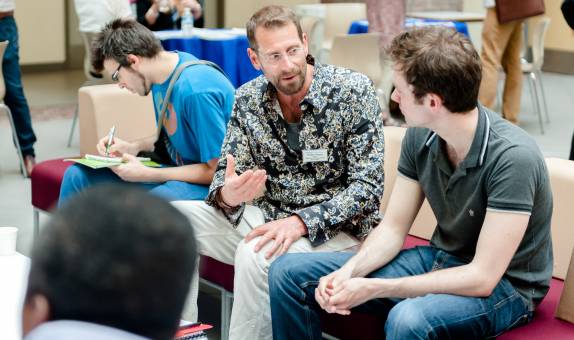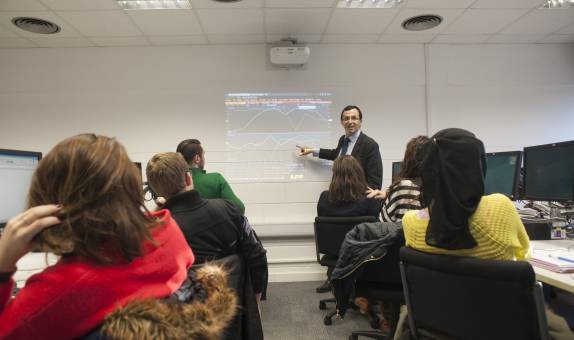There are full- or part-time courses in a wide range of subject areas. You will normally need a good honours degree or relevant professional qualification.
Taught degrees at Kingston include:
Masters degree
Our taught masters courses are usually studied full-time over one year or part-time over two years. You will gain an in-depth knowledge and understanding of your subject through tailored modules and you will produce a dissertation or project during your studies. Types of masters available include: Master of Arts (MA); Master of Science (MSc); Master of Business Administration (MBA); Master of Law (LLM); Master of Social Work (MSW); Master of Music (MMus); Masters of Philosophy (MPhil); Master of Landscape Architecture (MLA); Master of Fine Arts (MFA).
Postgraduate diploma (PgDip)
Similar to a taught masters degree, you will study taught modules however, usually a dissertation or project will not be required as part of your studies. You can usually progress to a masters degree from a PgDip by accruing credits.
Postgraduate certificate (PgCert)
Similar to postgraduate diplomas but take half the time to complete. A typical postgraduate certificate comprises three modules and can be completed in just 15 weeks of full-time study. A dissertation or project will not be required as part of your studies and you can usually progress to a masters degree from a PgCert by accruing credits.
Postgraduate certificate in education (PGCE)
A postgraduate certificate in education provides a route into teaching. The one-year course blends academic and practical learning through a combination of school placements and university-based learning.
Short courses
Short courses can be studied for personal interest, continued professional development or as a pathway to postgraduate study.
A one-year full-time or two-year part-time programme. The supervised thesis is the subject of an oral examination. You will normally need a good honours degree or relevant professional qualification. There are also opportunities to link your project to your career interests.
This innovative programme is structured around learning in your workplace. You will define with your employer and Kingston University a strategic problem and a personal development plan. Work-based tasks are completed and assessed under full university supervision.
Typically a two years full-time or three/four years part-time programme. The thesis (20 to 40,000 words) is the subject of an oral examination. You will normally need a first class or second class honours degree or equivalent in a subject relevant to your research programme.
A part-time programme for professionals, the Professional Doctorate is an exciting and challenging alternative to a traditional PhD. This work-oriented qualification typically runs over four years and provides excellent opportunities for advanced professional development.
This is typically a three/four years full-time or four/six years part-time programme. A PhD thesis (40 to 80,000 words) is the subject of an oral examination in which you will show both how you have critically investigated your area of research and how you have made an independent and original contribution to knowledge.
The Pre-Masters Programme is a masters preparation course for international students (non EU/UK) wishing to obtain a masters degree at Kingston University. The Pre-Masters Programme provides academic and English language preparation for international students whose current qualifications do not meet Kingston University's masters entry requirements.
More about: Pre-Masters Programme (This course is delivered by Study Group)















